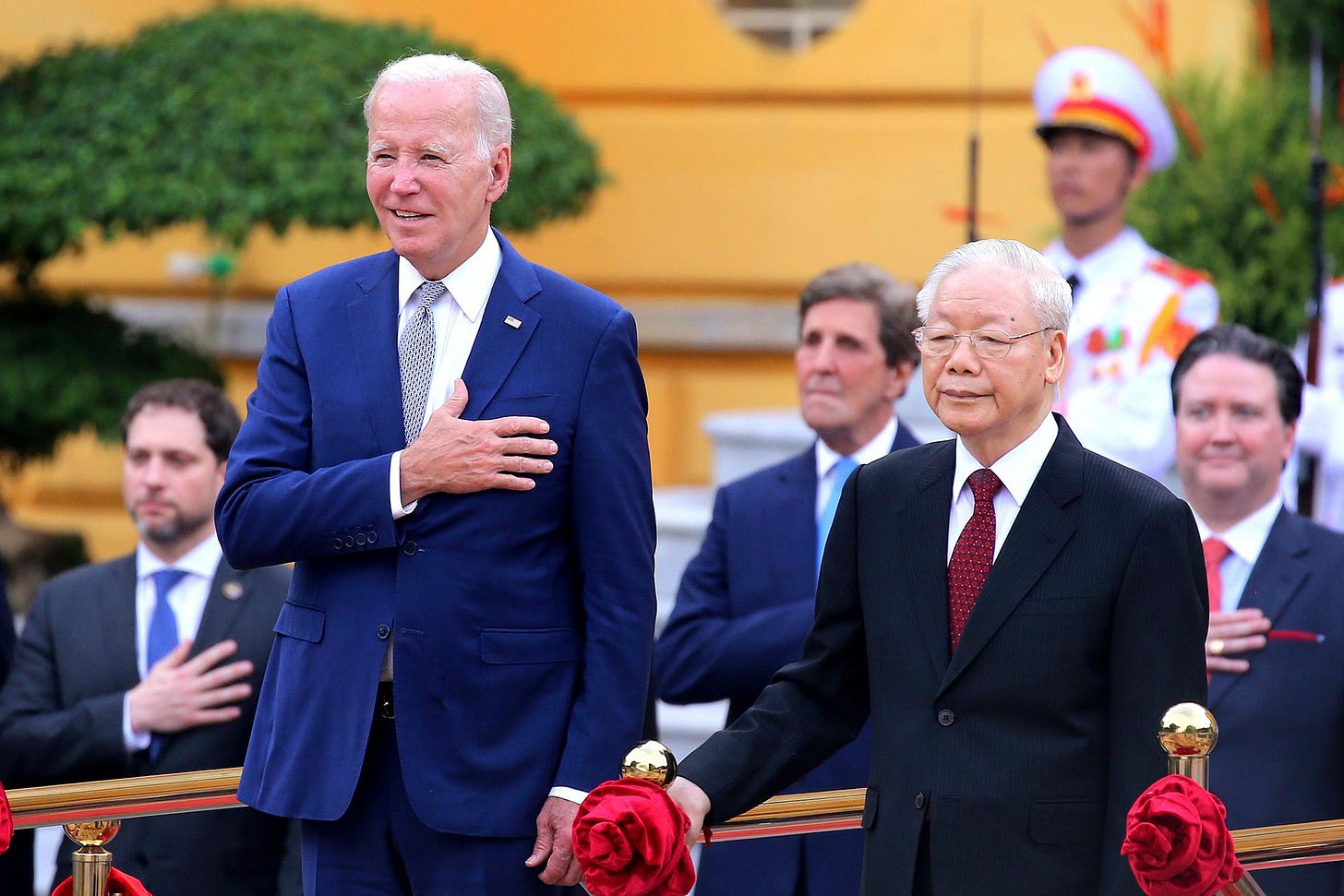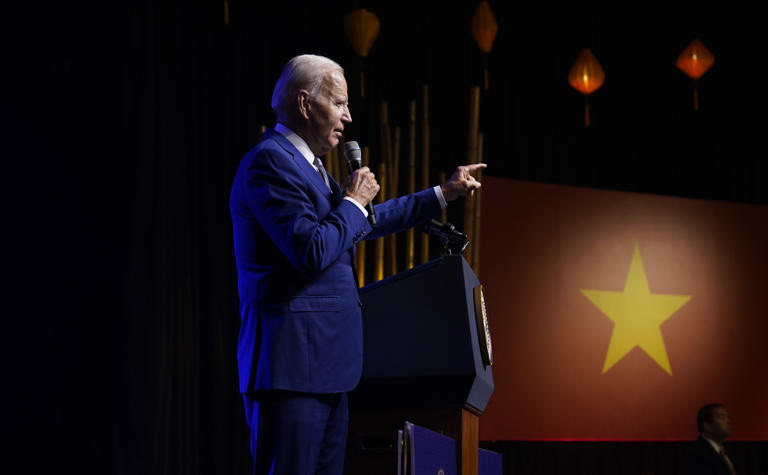U.S. and Vietnam Forge Strategic Partnership to Counter China's Influence
Biden and Vietnamese Chief Justice Sign Agreement, Emphasizing Prosperity and Security in the Region.

A New Strategic Partnership
U.S. President Joe Biden and Vietnamese Chief Justice Nguyen Phu Trong have taken a significant step forward in strengthening their bilateral relationship by signing an agreement that elevates their partnership to a strategic level. This development underscores the United States' broader strategy to counter China's expanding influence in the region.
A Region of Vital Importance
During a press conference in Hanoi following his meeting with Nguyen Phu Trong, who also holds the position of General Secretary of the Communist Party of Vietnam, President Biden expressed the importance of this new status. He stated, "This new status will be a force of prosperity and security in the region, one of the most critical regions in the world."
Weaving a Global Network
Biden framed the deepening of relations with Vietnam within the context of the alliances he has been cultivating since taking office in January 2021. These alliances include the revitalization of the Quad defense alliance and the establishment of the Aukus tripartite pact, involving Australia, the United Kingdom, and the United States.
Boosting Semiconductor Production
The core objective of the agreement is to bolster semiconductor manufacturing in Vietnam. Vietnam has already positioned itself as a leading regional manufacturing hub, making it an attractive alternative production destination for certain U.S. companies, like Intel. President Biden views microprocessor manufacturing as crucial for the U.S. economy and national security, particularly in light of China's dominance in this sector and the potential for supply chain disruptions, as experienced during the pandemic.

Solidifying Years of Effort
This agreement not only represents a strengthening of ties but also formalizes a relationship that has been in the making for years, now firmly integrated into the Vietnamese system. Jon Finer, a foreign policy adviser to President Biden, emphasized that the agreement speaks louder than words. Within the Vietnamese context, it serves as a signal to the entire government and bureaucracy regarding the depth of cooperation and alignment with Washington.
Vietnam's Diplomatic Balance
It's important to note that this strategic partnership does not imply that Hanoi will become an unwavering ally of Washington. Vietnam follows a foreign policy of balance among major powers, often referred to as "bamboo diplomacy," meaning it aligns with one side or the other depending on the circumstances. Vietnam has maintained a "comprehensive cooperative strategic partnership" agreement with China since 1988 and established a similar pact with Russia in 2001.
Emphasis on Mutual Understanding
Chief Justice Nguyen Phu Trong stressed the importance of mutual understanding, respecting each other's circumstances, and avoiding interference in internal affairs, as reported by Vietnamese official media. These principles underscore Vietnam's approach to international relations.
Evolving Relations
Historically, relations between Vietnam and the United States have faced challenges, but they normalized diplomatic relations in 1994, leaving behind the Vietnam War era. In 2013, during Barack Obama's presidency, the two nations signed a comprehensive partnership agreement, deepening cooperation in areas like public health and combatting transnational crime.
Responding to Growing Tensions
The elevation of the U.S.-Vietnam partnership to a strategic level comes at a time when both countries are experiencing heightened tensions with China. President Biden views China as the United States' foremost competitor, while Vietnam has ongoing sovereignty disputes with China over two archipelagos in the South China Sea, occasionally resulting in incidents involving Vietnamese fishing vessels and Chinese patrol boats.


